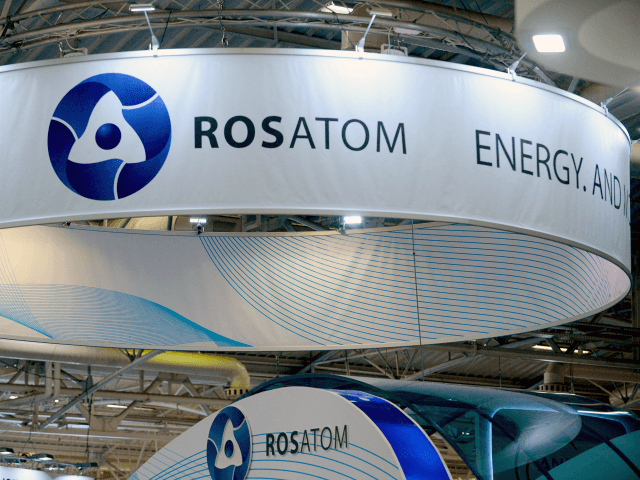Russia’s Rosatom state nuclear energy corporation is reportedly inking deals with African nations for nuclear reactors, including some highly unstable governments and undeveloped nations that do not require the amount of electricity generated by the plants.
The UK Guardian on Wednesday claimed that Russia is seeking to build influence in Africa and secure profitable long-term contracts with the nuclear power projects, many of which make little economic sense and might lead to some hair-raising security issues as authoritarian regimes teeter and insurgencies run wild:
Representatives of Rosatom, the Russian state corporation responsible for both the military and civil use of nuclear energy, have approached the leaders of dozens of African countries in the past two years.
Nigeria has a deal with Rosatom for the construction of a nuclear reactor, and less ambitious agreements of cooperation have been signed with Sudan, Ethiopia and the Republic of the Congo. Russia has also set up an office to promote nuclear energy in Zambia, with well-funded outreach campaigns designed to drum up enthusiasm.
Russia’s sales pitch includes political support for its customers, who are purchasing extremely expensive and highly centralized power plants. One of the criticisms leveled by human rights organizations against Rosatom is that building multiple smaller power plants across a larger power grid would give local communities more control and bring more electric power to the most impoverished parts of Africa.
The Guardian noted that many of the countries doing business with Rosatom “are run by movements or individuals who have long-standing relationships with Russia or – more often – the USSR.” One of Rosatom’s objectives is “reactivating old Soviet networks,” as Alex Vines of Chatham House put it.
“Russians can’t write big checks but have mastered the art of making themselves really popular, albeit with some of the worst leaders in Africa. They want the ties too. The more powers they can play off against each other, the better,” Africa Confidential editor Patrick Smith told the Guardian.
The Moscow Times on Thursday reported a Russian businessman known as “Putin’s chef,” Yevgeny Prigozhin, is heading up a parallel effort to “exchange security and electioneering services for mining rights in Africa.”
The biggest dropped ball in Russia’s African nuclear game so far was in South Africa, where Moscow placed heavy bets on former President Jacob Zuma’s ability to survive a massive corruption scandal. As the appellation “former president” suggests, the Russians lost that bet, and Zuma’s successor Cyril Ramaphosa quickly scuttled the monster Russian reactor proposal in favor of smaller projects more suited to South Africa’s finances.
The South African debacle was not merely a financial blow for Russia but also cast doubt on its promises to shore up regimes that do business with Moscow. The U.S. military is concerned about Russia (and China) using their growing influence in Africa to thwart American operations on the continent, proliferate dangerous weapons, bring “harsh security practices” to regions that were pretty harsh to begin with, and make the overall human-rights situation in Africa even worse.
Russia’s nuclear reactor sales effort in Africa bears many similarities to China’s Belt and Road infrastructure plan, including a somewhat less ambitious form of China’s “debt colonialism” that gets African leaders to sign off on loans their countries will never be able to repay and business plans that make customers highly dependent upon Russian supplies and personnel.
The Russians even have their own version of Communist China’s suspicious Confucius Institutes, the Russkiy Mir Foundation, which is currently promoting Russian language and culture through centers known as “Russkiy Cabinets” in nine African nations. Some Russians find the performance of the Russkiy Mir Foundation disappointing, in part because China has been far more aggressive in promoting its language and culture across Africa.

COMMENTS
Please let us know if you're having issues with commenting.